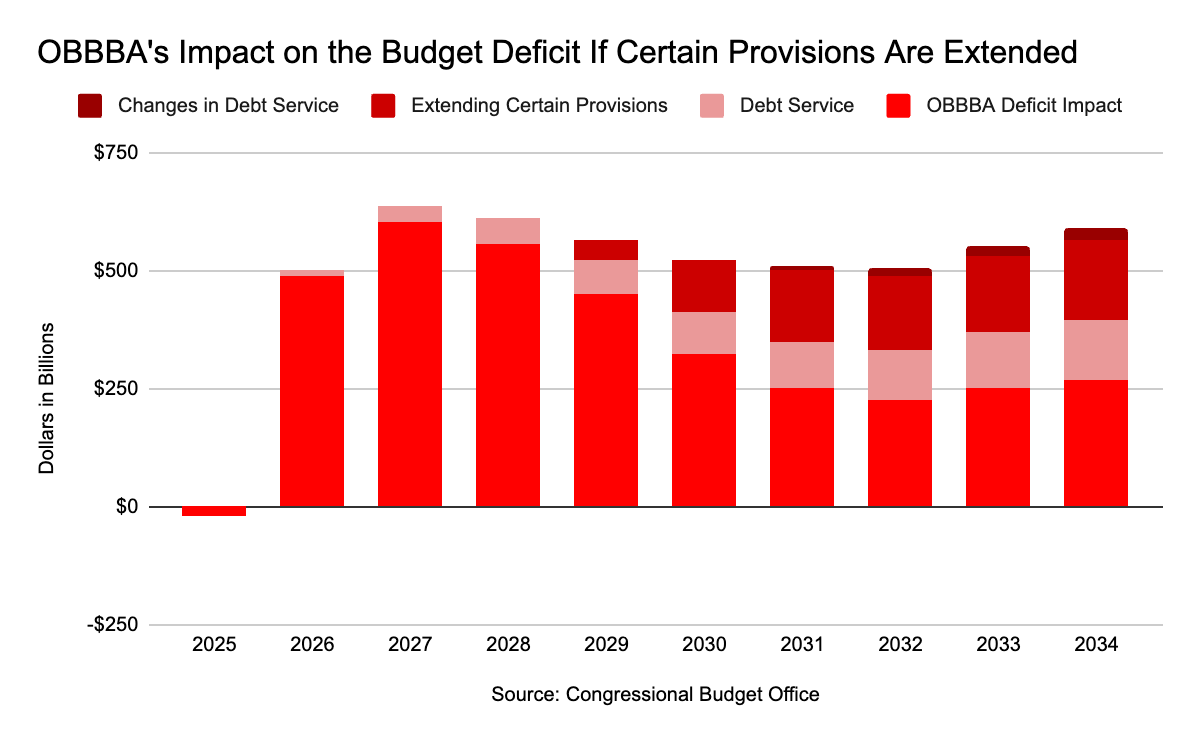An Update on OBBBA's Potential Impact on the Budget Deficit
CBO estimates that interest costs and extending certain provisions will push the deficit impact of the bill to $5 trillion
There’s a new estimate of the deficit impact of the so-called “One Big Beautiful Bill Act” (OBBBA) from the Congressional Budget Office (CBO). This estimate comes in response to an inquiry from Senate Budget Committee Ranking Member Jeff Merkley (D-OR), who asked the CBO about deficits and debt under OBBBA.
Previously, the CBO estimated that OBBBA would increase the deficit by $3.4 trillion over ten years. However, that estimate didn’t include the additional interest that comes with financing the debt caused by OBBBA.1 The impact on the deficit is actually a little larger than the $4.083 trillion that I estimated on July 21. The latest estimate from the CBO shows that deficits will increase by $4.113 trillion over the next ten years.
That’s not all. The CBO also estimated the impact of extending ten provisions of OBBBA, including the deductions for tipped wages, overtime, and auto loan interest. Taken together, including debt service, the deficit impact of OBBBA rises to $4.971 trillion over ten years. Below, you’ll see the chart of the new CBO estimate, excluding the extension of certain provisions.
And here’s another chart showing the same chart above, but it includes the extension of certain provisions of OBBBA and the related increase in debt service of extending those provisions. Deficits would be $861 billion higher if those provisions are extended.2
There’s not too much else to add in terms of commentary on this. OBBBA will go down in history as the most fiscally irresponsible piece of legislation ever passed by Congress. I’m convinced of that. It only exacerbates the existing problem—out of control deficits—that are driving the United States into insolvency.
To be completely fair, the CBO hasn’t release an estimate with macroeconomic effects. Although changes in the economy may lower the overall impact on the deficit, we’re still talking about a substantial impact on the deficit.
Including increased interest costs.




